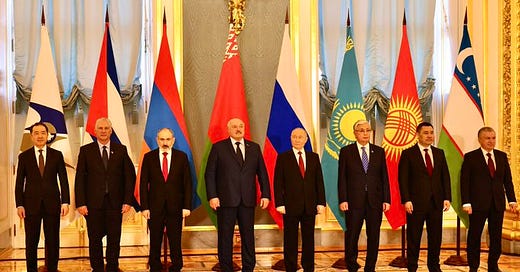The Eurasian Economic Union (EAEU or EEU) is an organization of regional economic integration, consisting of states of the former Soviet Union. Its member-states are the Republic of Armenia, the Republic of Belarus, the Republic of Kazakhstan, the Kyrgyz Republic, and the Russian Federation. It provides for the free movement of goods, services, capital, and labor among the nations of the Union. It was created with the objective of increasing the productivity of the national economies and their competitiveness in the world-economy, with the intention of raising the living standards of the member nations.
Such a free trade association among states promotes their common development when they have equal and complementary levels of development. On the other hand, a free trade agreement deepens inequality when the countries have unequal levels of development, with some nations manufacturing high value-added goods and others concentrated in the exportation of low-waged, low val…



